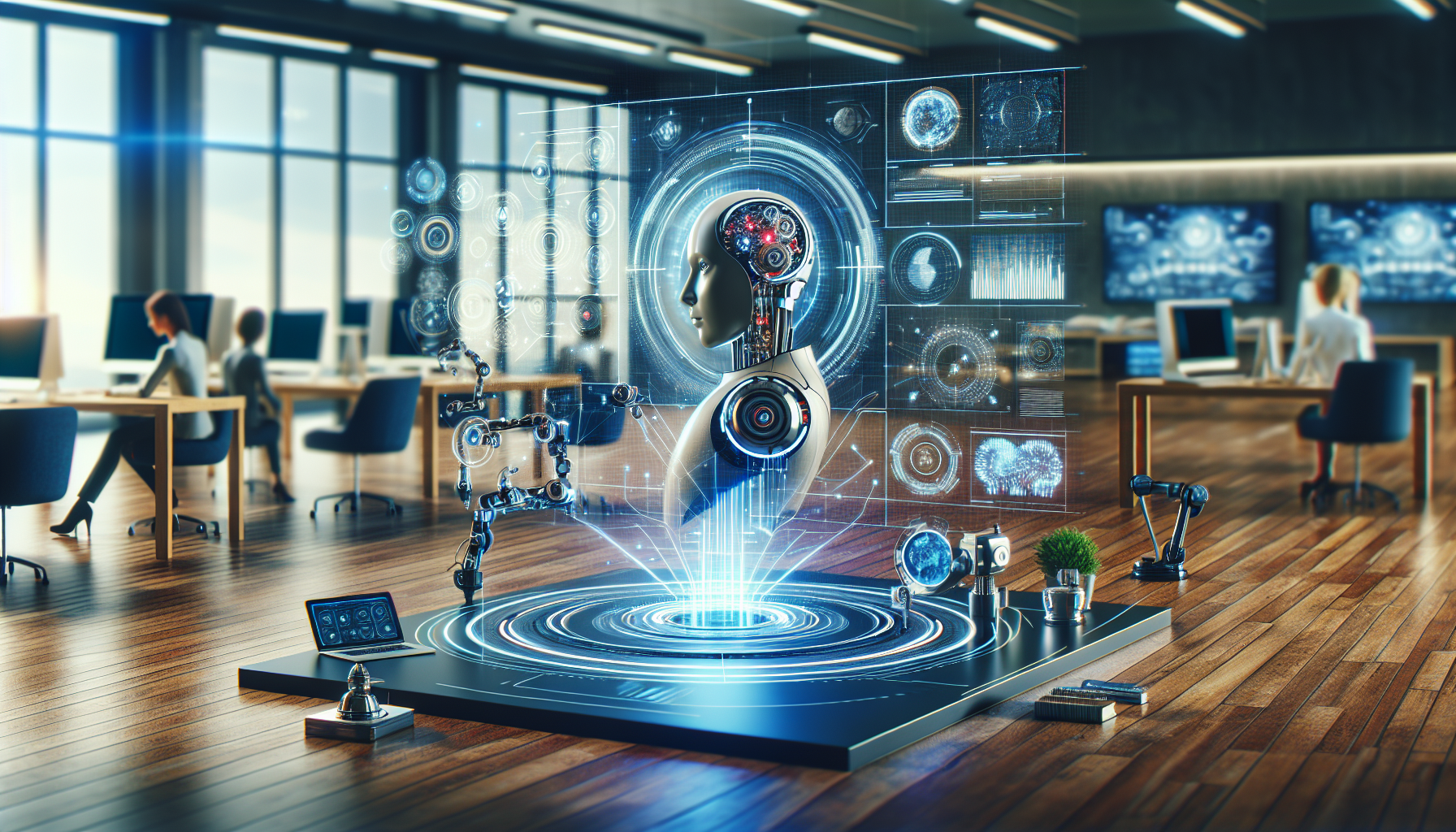
AI and Aging: Are Robots the New Bingo?
February 23, 2025
Picture this: your grandma, the undisputed queen of bingo night, suddenly trades her trusty bingo marker for a sleek AI assistant that not only calls the numbers but also makes a mean cup of tea. Welcome to the future, where artificial intelligence is becoming the latest companion for our aging population—minus the knitting needles.
Let’s dive into this curious world where AI and aging collide, like two unlikely dance partners at a wedding reception. On one side, we have our seniors, with their vintage vinyl records and encyclopedic knowledge of the good old days. On the other, AI, the digital whiz kid with a penchant for data and a lack of appreciation for vinyl's crackling charm. But together, they create a symphony of possibilities.
First up, let’s talk about personal assistants. Move over, human caregivers; there’s a new robot in town. These AI-powered gadgets are more attentive than your average teenager. They remind seniors to take their medication, schedule appointments, and even engage in stimulating conversations—though their repertoire of jokes could use a little more pizzazz. But hey, at least they never get tired of hearing the same story from 1952.
Now, let’s not forget the healthcare revolution. AI is like that overachiever in class who always has the right answer. With the power to analyze medical data faster than you can say "geriatric," AI systems assist doctors by predicting health issues before they become a problem. Imagine a world where a digital assistant alerts you that it’s time for a check-up, just as you’re about to settle in for a Matlock marathon. It’s like having your very own virtual Dr. House, without the sarcastic bedside manner.
And then there’s mobility. Remember those clunky walkers? Well, AI-driven mobility aids are here to revolutionize the scene. These smart devices not only help seniors get around but also ensure they don’t accidentally wander into the neighbor's garden, again. With features like obstacle detection and route optimization, they’re the Google Maps of the mobility world, minus the occasional "recalculating" hiccup.
But let's address the elephant in the room: the fear of technology. Many seniors approach AI with the same caution as they would a teenager with a skateboard. However, once they embrace it, they often find it’s not as intimidating as they feared. In fact, AI can even help bridge the digital divide by offering easy-to-use interfaces and voice-activated commands. It’s like having a tech-savvy grandchild on call 24/7, minus the need to bribe them with cookies.
In comparing the benefits of AI with traditional methods, one can't overlook the companionship factor. While no robot can replace the warmth of a human hug, they can certainly offer a comforting presence. AI companions, or "robo-pals," as I like to call them, engage seniors in activities that stimulate the mind and keep loneliness at bay. They’re the ultimate wing-bots at social gatherings, ensuring no one ever feels left out.
However, this relationship between AI and our aging population is not without its quirks. For instance, there’s the occasional mix-up where Alexa accidentally orders 50 pounds of cat food instead of playing Frank Sinatra. Or the time when a senior tried to teach a robot to knit, only to discover that dexterity isn’t quite their forte. But these hiccups are all part of the charm in this wonderful fusion of past and future.
So, what does this all mean for society? Are we on the brink of a utopia where every senior has a digital sidekick, or is it more of a sci-fi sitcom waiting to happen? It’s clear that AI has the potential to transform the golden years into a time of empowerment and independence. But the real question is: how do we ensure that this technology is accessible, affordable, and, most importantly, human-centric?
As AI continues to evolve, perhaps it's time to ask ourselves: will robots ever truly understand the joy of a good bingo game, or the satisfaction of a perfectly brewed cup of tea? The jury’s still out, but one thing’s for sure—AI is here to stay, ready to embrace the challenge of aging with a little humor and a lot of heart.


